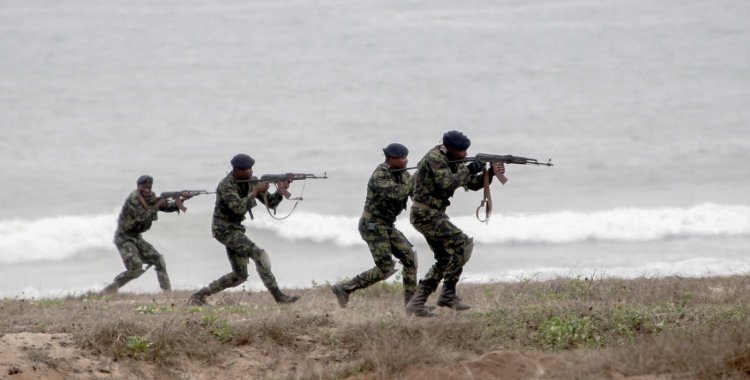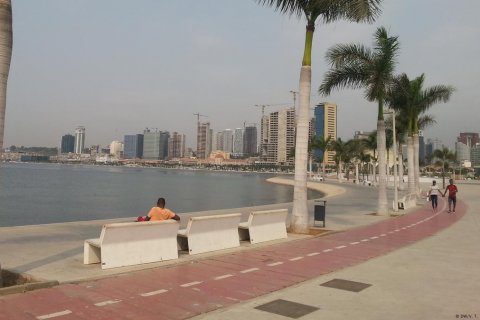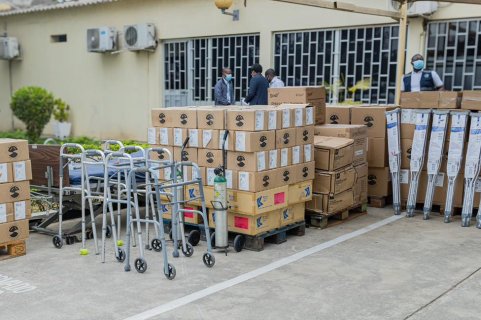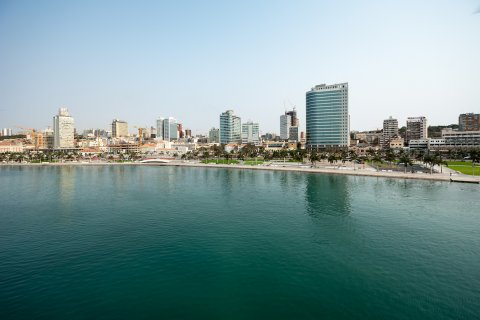The referred law proposal was approved with 181 votes in favor of the Movimento Popular de Libertação de Angola (MPLA), União Nacional para a Independência Total de Angola (UNITA), Convergência Ampla de Salvação de Angola - Coligação Eleitoral (CASA-CE), Partido de Renovação Social (PRS) and Frente Nacional de Libertação de Angola (FNLA).
UNITA justified its vote in favor because it believes that the law serves to "mark out, to put an end to illegal and provocative behaviors derived from the arbitrariness of meddling in the affairs of others" and that caused "irreparable damage to the country's image".
According to the UNITA MP, Joaquim Nafoia, "the country more than ever needs to improve and deepen the relations of good neighborliness and closeness with the other peoples of the world, always in the perspective of mutual advantages without conflicts".
"The UNITA parliamentary group voted in favor because it believes that with this instrument, the executive should prioritize the creation of conditions that safeguard the permanence time of soldiers, sergeants and officers in service missions abroad, as well as offer a guarantee of social stability for their families," he stressed.
For his part, the deputy from CASA-CE, André Mendes de Carvalho "Miau", explained the favorable vote of his parliamentary group, arguing that the law contains all the necessary assumptions for approval, highlighting that it clarifies the situations of peace operations, in its various aspects, humanitarian and missions arising from international commitments.
"When it comes to the principles, we are also satisfied, although with paragraph e) we have some difficulty, when we talk about peaceful coexistence between military, paramilitary, general population and humanitarian professionals. If you send a military contingent abroad it is to settle conflicts and this issue of peaceful coexistence is not well understood", warned the deputy, adding that this aspect did not affect his vote.
André Mendes de Carvalho "Miau" expressed satisfaction for the fact that the law grants the National Assembly the power to authorize the departure of military and paramilitary personnel outside the country, at the request of the President of the Republic, as commander in chief of the Angolan Armed Forces.
In the case of sending military and paramilitary personnel on an individual basis within the scope of international commitments assumed by the State, the President of the Republic does not need to inform the National Assembly.
The law establishes rules and principles to be observed, including respect for human rights, the reciprocity of benefits, cooperation for peace, justice and progress of mankind, respect for the sovereignty of other states and peaceful coexistence between military, paramilitary, population and humanitarian professionals.
Also this Thursday, the National Assembly approved the draft law on Excise Tax, with 165 votes in favor from MPLA, UNITA, PRS and FNLA, none against and 12 abstentions, from CASA-CE and deputies not integrated in parliamentary groups.
In her explanation of vote, UNITA deputy Maria Luísa de Andrade said that this decision will contribute for the companies in question to start producing again and to avoid more worker layoffs, "although I don't agree with such a sharp decrease in the rates, which went from 21 percent to 8 percent some of them," she said.
"If the products of the basic food basket are taxed at 5 percent, how come alcoholic beverages and tobacco are taxed at 8 percent, knowing that if you are going to buy an alcoholic beverage or tobacco, you first have to satisfy your basic need?" she questioned.
Maria Luísa Andrade suggested a thorough study in relation to taxation, taking into account that businessmen from the goods and essentials branch also complained about the rates applied in their areas of activity and there was no response from those responsible, and the same happens with the Labor Income Tax (IRT).
The current law provides for a rate of 25 percent for distilled spirits and beverages, which is now reduced to 21 percent, while soft drinks are reduced from 19 percent to 8 percent.
The proposed amendment, he added, proposes rates of 8 percent for soft drinks, 11 percent for beers and ciders, 15 percent for wines and 21 percent for spirits.
The relief from this tax comes in response to complaints made by industry operators.
In 2019, the Association of Beverage Industries of Angola (AIBA) demonstrated against this tax, asking the authorities to reverse the unilateral measure of increasing the IEC, which jeopardized the continuity of many companies.







